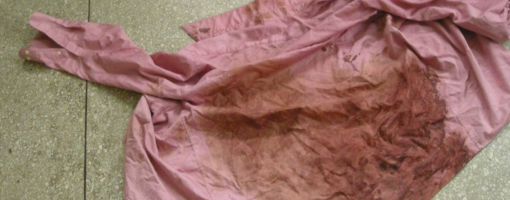
Sahrawi students at the University of Marrakech, Moroccco, are subjected to assault and chasing by armed gangs, according to human rights NGO, CODESA.
This statement was yesterday released by Sahrawi human rights organisation CODESA:
Marrakech, central Morocco, has been witnessing dangerous events for more than two weeks caused by some gangs armed with swords and batons, targeting the Sahrawi students who are studying there. The Sahrawi university students are attacked at university, in the university campus, in their homes and in the public streets because of their advocating the Sahrawi people's right to self-determination and independence.
The Sahrawi students claim that since April 08th, 2008, they have been assaulted by disguised persons with turbans, who are attacking the Sahrawi students in the campus and outside.
Belaid Chrif, a Sahrawi student, was injured at the level of his hand. Hassan Stiti was attacked by the same people while sleeping at home on April 07th, 2007 and his face, legs, hands and shoulder were wounded, and was taken to hospital in a delicate state.
On April 12th, 2008, Ennaji Charabara, was attacked by six persons, while getting out of a cybercafé, and was inured on his right arm.
Latif Lahbib, a 30 year-old human rights defender and a student researcher, was surprised by a group of armed agents attacking him inside the university campus. The assault resulted in three severe wounds on the head, different wounds on the shoulder and four other injuries on the right kidney's level. He had to stay for 48 hours in the hospital and he is now in coma.
In this respect, Khalihanna Aboulhassan, a Sahrawi student, was arrested by the Moroccan police in plainclothes, from a public street, while the anti-Sahrawi criminal gangs are moving freely if not supported. Khalihanna had been disappeared since April 15th, before he was reported to be in Bouleharez Prison in Marrakech, Morocco. He claims that he was tortured and interrogated without knowing any reason for his arrest.
The Moroccan authorities arrested, in ambiguous conditions, the Sahrawi human rights defender and co-president of the CORELSO, Ennaama Asfari on April 13th, 2008, and was put in Boulemharez Prison in Marrakech, awaiting his trial on April 21st, 2008.
Following these dangerous developments against the Sahrawi students in the Moroccan universities, the CODESA secretariat points out the following:
-the Moroccan authorities silence re these militia attacks against the Sahrawi students.
-these developments coincide with the end-of-year university exams, which will certainly affect their achievement results negatively.
-the concern of a probable backing up of these armed agents by the Moroccan authorities and assuring their protection in order to chase and assault the Sahrawi university students, aiming to intimidate them in order not to defend the Sahrawi people's right to self-determination, or even not to continue their university studies.
Thus, the CODESA secretariat :
- calls the Moroccan authorities to assume its responsibility in protecting the Sahrawi students studying in its universities, and respecting their political views.
- asks the Moroccan state to look into the brutal attacks that targeted the Sahrawi students in Marrakech these recent days.
- Condemns the Moroccan authorities return to the political arrest, torture and false trials against the Sahrawi students and human rights defenders.
The CODESA secretariat,
El Aaiun, Western Sahara.
April 21st, 2008.
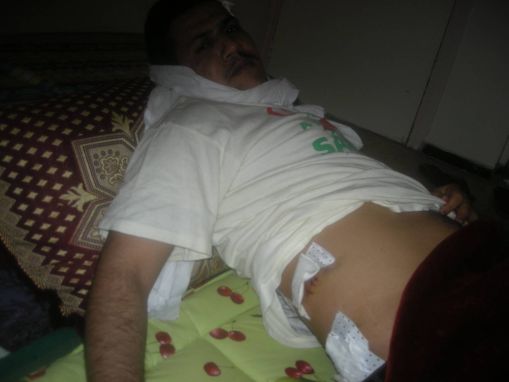
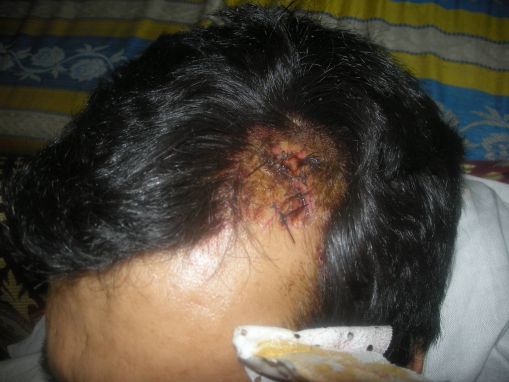
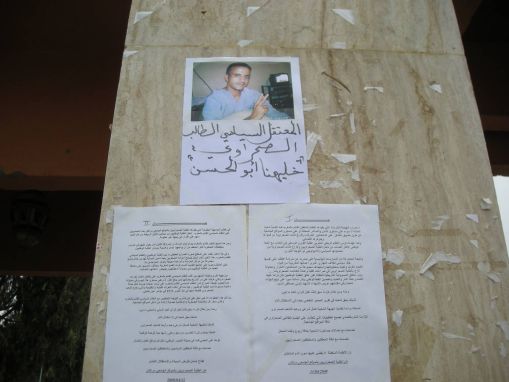
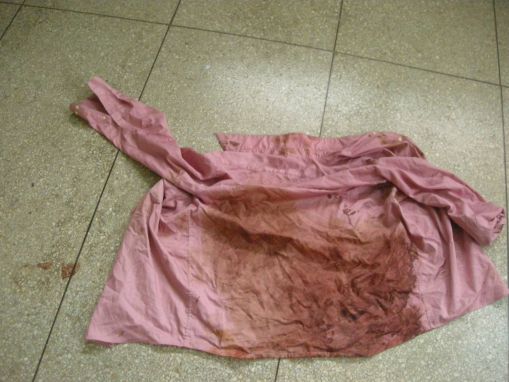
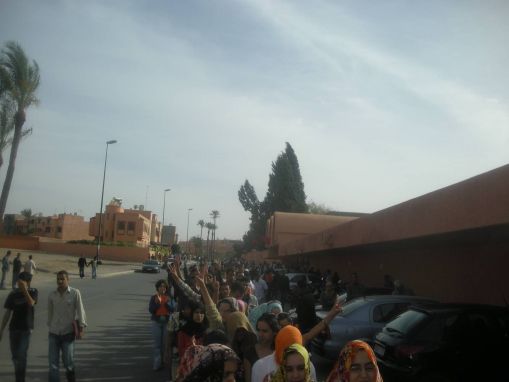
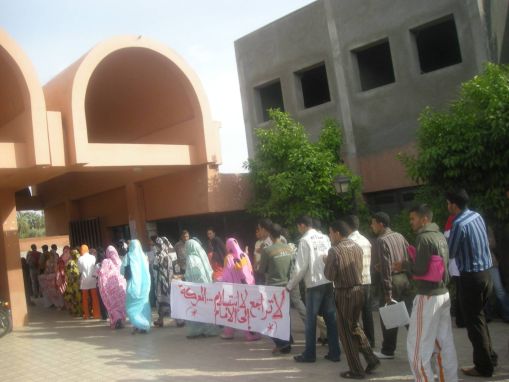
Order our Western Sahara poster!
“Try to Visit Western Sahara”…
The Security Council fails Western Sahara and international law
On 31 October 2025, a new resolution was adopted in the UN Security Council calling on the Saharawis to negotiate a solution that would entail their incorporation into the occupying power, Morocco.
Saharawis Demonstrate Against Trump Proposal
The United States has proposed in a meeting of the UN Security Council on Thursday that the occupied Western Sahara be incorporated into Morocco.
Skretting Turkey misled about sustainability
Dutch-Norwegian fish feed giant admits using conflict fishmeal from occupied Western Sahara. Last month, it removed a fake sustainability claim from its website.



